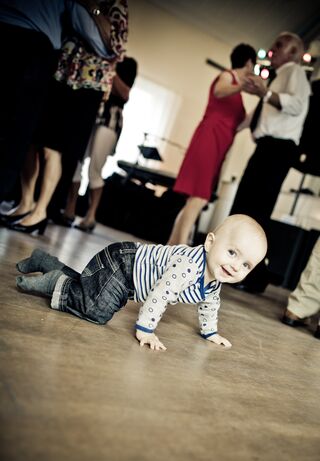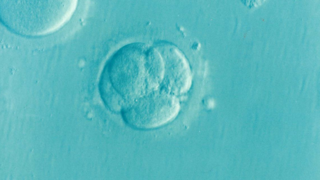Cognition
No One Is Born a Parent
Building bridges over the kid/no kid chasm.
Posted August 13, 2020 Reviewed by Lybi Ma

Barren. Genetic dead end. Bare branch. What purpose do such labels serve when we all spend a goodly portion of our lives sharing the same path?
Language can be problematic when talking about people who don’t have children. So can attitudes.
Last week in Australia, for example, a male member of Parliament referred to a childless female rival using the term “barren.” This week, the brouhaha continues with explanations, rationalizations, and calls for apology peppering the news worldwide.
Barely four years ago, Tory party challenger Andrea Leadsom suggested that future UK Prime Minister Theresa May was inferior leadership material because she wasn’t a mum. Leadsom soon bowed out of the race.
Joe Biden's running mate for the presidency, U.S. Senator Kamala Harris, stepmother of two, will surely be caught in the crosshairs of assessing her fitness to serve based on parenting.
Recently I was asked to guest host a webinar about what it’s like not having kids. The sponsoring organization, based in Europe, educates clients about the in vitro fertilization process they’re about to undergo.
I was stunned.
Having been treated unsuccessfully for infertility myself, I knew mine was the last story participants wanted to hear. Yet the organization acknowledged the reality that not everyone who goes through the procedure will succeed.

For perspective, in 2018, 24 percent of cycles using assisted reproductive technologies in the U.S. resulted in a live birth.
As I ruminated over how to approach this delicate topic with compassion and honesty, it hit me: No one is born a parent. Most everyone, even those who grow up and have kids, will likely spend at least a quarter of their lifetimes not having children. We all travel the same path, at least for a while.
So while IVF clients try a complex route to conceiving a child, if the process doesn’t work, they will rejoin a life path they’ve already trod for years. Crushing, to be sure, but familiar. I’d found the soft opening to what I wanted to share with the IVF webinar participants.
Recognizing that every one of us has spent many years similarly situated—without kids of our own—offers a route to acceptance, understanding, and kindness. Often, though, those whose futures are as of yet unknown regularly experience pressure to have them. The childless are pitied when they can’t. And the childfree are treated with disdain for deciding not to have kids of their own.
To be sure, parenting is a pivotal, life-changing experience. Though as many discover, the outcome isn’t all volition. It also hinges on biology, happenstance, ethics, and economics.
While the vast majority of adults will go on to have children, the Centers for Disease Control and Prevention reports that 45 percent of pregnancies in the U.S. are unplanned.
In recent weeks, the media has considered how the pandemic might impact childbearing. Samhita Mukhopadhyay noted in The Atlantic that with our unsafe and uncertain future, not having kids might well be a wise decision, and she hopes this portends greater acceptance of those choosing not to become parents.
The Guardian launched a feature called “Childfree” that solicits comments from readers about not having kids. To date, over 2000 people have responded, and the series is going strong. People are talking through the taboos.

The state of the world today invites us to bridge gaps and develop understanding in new and different ways. It’s time we chuck the crushing weight of pressure and judgment about reproductive output. We’ve all been where some of us remain today—not a parent—whether by choice or by circumstance.
Not having kids is real. It’s been a “thing” for as long as humans have walked the Earth. We’ve all walked the same path together. Therein lies the source of empathy and opportunity for connection. Lest we forget, we also share the same destination.


